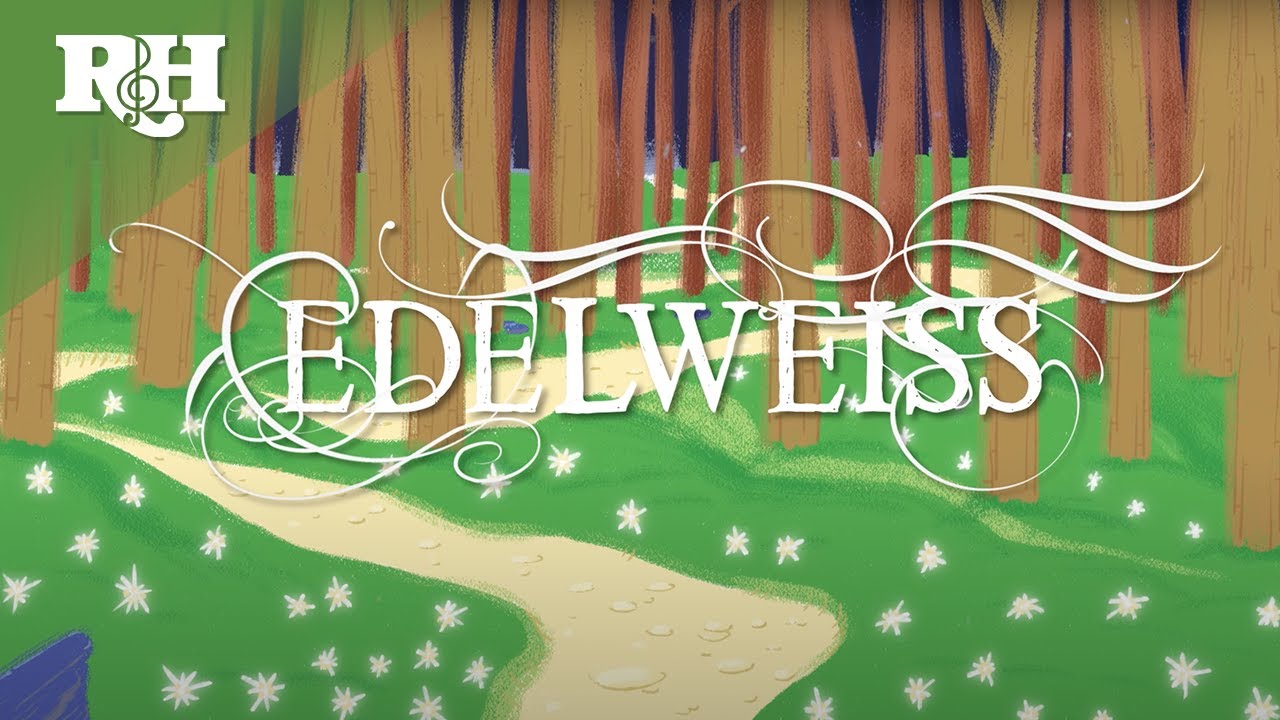This gentle song, sung by Captain von Trapp, revolves around a symbol of Austrian pride: the edelweiss flower. But the interpretation of this ballad may vary based on how the lyrics are approached. The delicate beauty of the flower, as described in these lines, is a reflection of purity, simplicity, and national identity. As we break down the first verse, we see layers of meaning in the seemingly soft words.
The repetition of “Edelweiss, edelweiss” right at the start establishes an intimate connection between the captain and the flower. The flower isn’t just any plant—it’s personal. “Every morning you greet me” carries a sense of familiarity, almost as if the flower is a faithful companion. By associating this greeting with the start of the day, the flower is imbued with a sense of renewal and optimism. The flower seems to give the captain a feeling of welcome, of a bond that extends beyond mere existence in nature.
“Small and white, clean and bright,” paints the edelweiss in the purest terms, almost as if the flower represents something untouched, something ideal. This imagery makes it clear that the flower is not just an ordinary part of the landscape. Its purity and simplicity evoke a sense of innocence and beauty that the captain cherishes. But, more than that, it’s a marker of something deeper—perhaps a connection to his homeland, a purity that he yearns to protect.
When Captain von Trapp sings, “You look happy to meet me,” the flower seems alive, almost like a being that reciprocates the captain’s affection. It’s as if the flower’s presence brightens his world. In this moment, the flower becomes symbolic of more than just a natural entity—it’s a constant, a touchstone in his life, a representation of what he holds dear. The flower isn’t just something beautiful; it’s a companion that seems to understand him, offering a sense of comfort.
“Blossom of snow, may you bloom and grow,” is a wish, a hopeful sentiment directed at the flower. But it’s not just about the flower’s growth. It’s a plea for the preservation of something pure, something that can continue in the face of difficult times. By wishing for it to “bloom and grow forever,” the captain desires a lasting legacy, a continuity that transcends time. This line could also be interpreted as a metaphor for his love for his homeland and his hope that it remains untouched, flourishing amid adversity.
In “Edelweiss, edelweiss, bless my homeland forever,” the edelweiss transforms into a protector of the homeland, almost like a guardian spirit. The blessing extends beyond the flower itself and encompasses the nation. It’s a deeply patriotic sentiment, yet the tone is not one of aggressive nationalism. It’s quiet and reverent, showing a profound love and respect for the country. This moment reflects a tender, almost spiritual connection to the land, suggesting that the captain’s love for his country is intertwined with his affection for the flower.
The second time these lines are repeated, this time sung by Captain von Trapp, Maria, and the children, there’s a sense of unity. The song takes on a collective tone—no longer just the captain’s personal sentiment, but something shared with his family. The repetition of “small and white, clean and bright” in this section reflects a universal appreciation for the flower, and by extension, for the values it represents.
By joining together to sing about the edelweiss, the family creates a bond not only within themselves but also with their homeland. There’s a sense of belonging in these lines, a realization that they are all part of something greater. The chorus of voices expands the song’s meaning from personal to collective, making it a song of both individual and national identity.
As the song progresses, the emotional depth deepens. The wish for the edelweiss to “bloom and grow forever” grows more urgent. It’s no longer just about the flower—it’s about something much larger. It’s a call for preservation, a desire for continuity in a world that may be shifting. In these moments, the flower becomes symbolic of resilience. It’s a plea to hold onto what is beautiful and true in the face of challenges.
In the final line, “Edelweiss, edelweiss, bless my homeland forever,” there’s a sense of finality, but also hope. The captain’s blessing doesn’t just express his love for his country—it’s a prayer for its future, a desire that this beauty and purity may endure through all trials. It’s a soft but powerful expression of patriotism, deeply tied to both the personal and the national.
The song’s context adds another layer of meaning. When sung during the Nazi occupation, the edelweiss becomes more than just a symbol of Austria—it becomes an act of quiet defiance, a way for the people to connect to their homeland and to each other in the face of oppression. The lyrics, once filled with the innocence of nature, are transformed into a plea for survival, for continuity, and for solidarity in the darkest of times. The edelweiss, in this context, carries both personal and collective significance, a symbol of strength against tyranny.
Ultimately, these lyrics are simple in their language, yet profound in their implications. They speak to the universal desire to protect what is beautiful and pure, to preserve a sense of home, and to hold onto the things that define us, even when everything around us changes. The edelweiss, in its fragility and resilience, captures the essence of the human spirit—hopeful, enduring, and unyielding.
